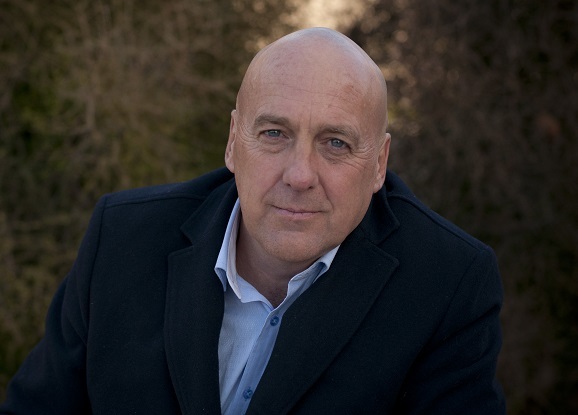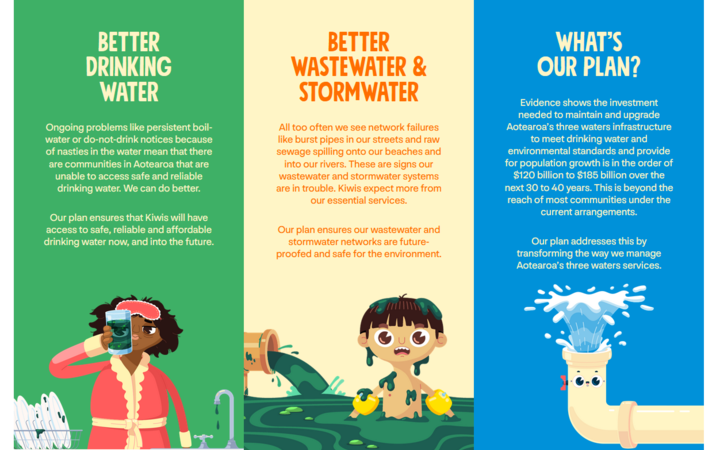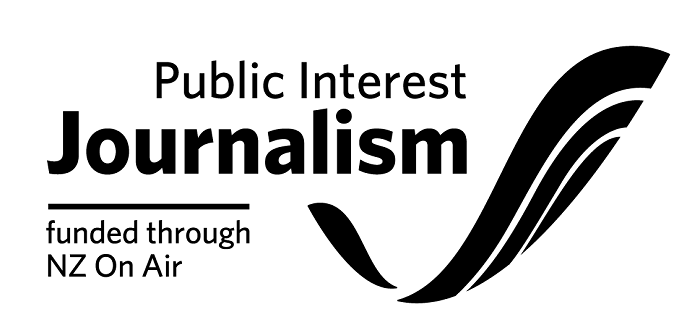Central’s Three Waters in Need of Considerable Investment
Jill Herron
27 October 2021, 5:00 PM
 Central Otago will be part of the largest of four new water service entities to be established over the next three years nationwide
Central Otago will be part of the largest of four new water service entities to be established over the next three years nationwideCentral Otago’s water infrastructure, like many others nationwide, is in need of considerable investment but the way government has gone about taking over that responsibility has drawn the ire of many people.
Petitions and opinions quickly began swirling around yesterday, following the government’s announcement it intended to “push on” with nationwide changes taking water services away from local councils.
Drinking water, storm and wastewater are currently a part of council operations and Central Otago District Council Mayor Tim Cadogan said yesterday it was disappointing but no surprise that the changes known as the Three Waters reforms were now being mandated.
The impact on rural communities was a particular concern.
Central Otago generally had good standards of town water, he said, but major upgrades were now needed, he said.
“The quality is good generally, but it doesn’t comply with the National Drinking Water standards. Up until the last month or so, those standards weren’t enforced but the passing of the Water Services Bill means they now will be. Council determined in the 2018 Long Term Plan to bring all our treatment plants up to standard by 2028”.
The Clyde Alexandra water supply was due for major works, he said.

Mayor Tim Cadogan says protesting the mandate is unlikely to change anything
“The previous supply and the one that still supplies Clyde does not filter the water. The new plant has to filter under the now-enforced standards. Unfortunately a bug known as Lindavia was found during trials in Lake Dunstan meaning the filtration is going to cost several million dollars more because the cheaper system that was planned to be used was highly ineffective with Lindavia present. This is also a significant part of why getting better water to Alexandra has been delayed. Filtration will need to be added to most of our other plants into the future.”
The biggest issue in Central, however, was wastewater and retaining current systems was not going to be feasible.
“Presently 92% of Centrals treated wastewater goes to other water bodies. We know that is not going to be acceptable into the future and the other option, being disposal to land, is going to be very expensive.”
While having government take on the issues would have benefits, the introduction process and potential lack of control of the reforms was cause for concern.
He said the government had failed to explain properly why the reforms were needed or why the system chosen was favoured and this had roused much opposition.
He described a television advertising campaign featuring cartoon people and dirty water pouring from pipes as “unhelpful, uninformative and divisive”.

Advertising campaign that was broadcast on Television
“That combination of an information vacuum and rampant misinformation has led to an entirely predictable and understandable public backlash. That, in turn, in my view has been a significant factor that has led the Government to a choice between calling the whole thing off or forcing it through; and I am not surprised it has taken the latter option.”
Central Otago will become part of one of four new governance entities, in three years time. The region will be included in the entity which is largest geographically, covering most of the South island.
With the region’s population being small he hoped our influence in how things were run under the new scheme would not be equally diminutive, but was optimistic there would be opportunity for input into the setting-up process.
“That there is a Working Group to be formed to continue to work on crucial parts of the proposal gives some hope that councils’ voices will still be heard in refining what we have been given. There is still a lot of work that can be done to try to influence much needed changes to the final outcome, especially from a rural perspective such as ours, and that is where I intend to put my focus and energy.”
Meanwhile rural residents in particular who were concerned about the future of their water infrastructure should gear up to have their say, according to Federated Farmers President Andrew Hoggard.
"Federated Farmers, a majority of local authorities and many New Zealanders have voiced serious misgivings over the government’s plans for council three waters assets to be transferred to four new mega entities. We remain opposed to this plan. The government’s announcement today that this will be mandatory is a huge call," Andrew said.
The government had earlier indicated that councils could have the option to opt out of the new system but yesterday the Minister of Local Government, Nania Mahuta, said all must be in for the reforms to work properly. She said the changes were necessary because many councils would not have the ability to undertake essential upgrades of pipes and plants on their own.
According to the Department of Internal Affairs, the Three Waters assets would transfer from the councils to the new entities and would “sit on the balance sheet” of the entities. Councils would, however, collectively own the Water Service Entity providing services for their district.
The Department’s website states that communities will retain an influence on three waters assets and services through their council and other mechanisms that provide for “direct input” into key strategic planning processes, including asset management planning, investment prioritisation and pricing and charging.
.Mayor Tim said the CODC would be discussing the issue next week but indicated that protesting the mandate was unlikely.
“I am more attracted to working with what we have in front of us to try to get the best outcome moving forward than expending a lot of time and energy in making noise about something that won’t change.”



